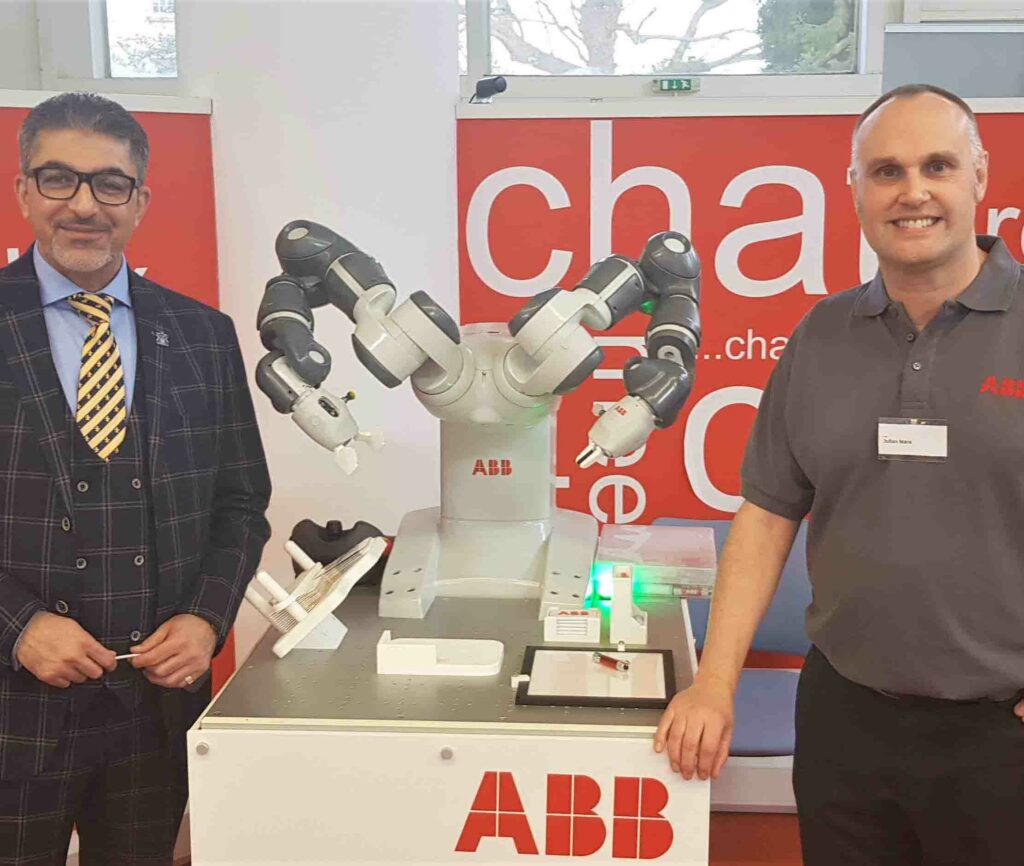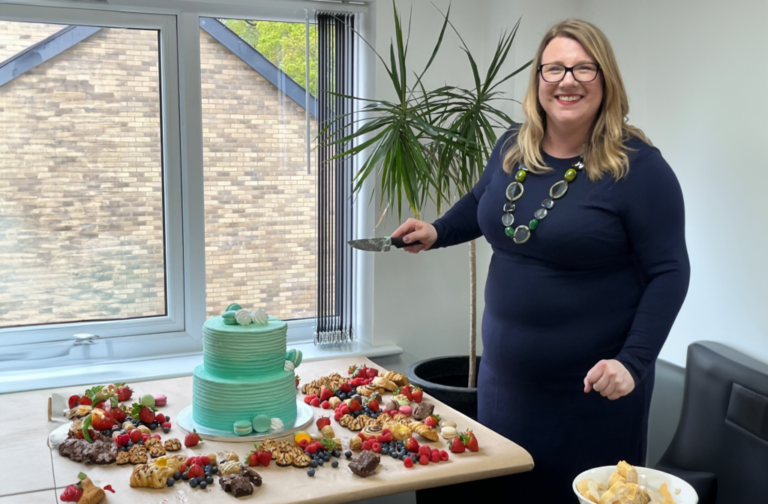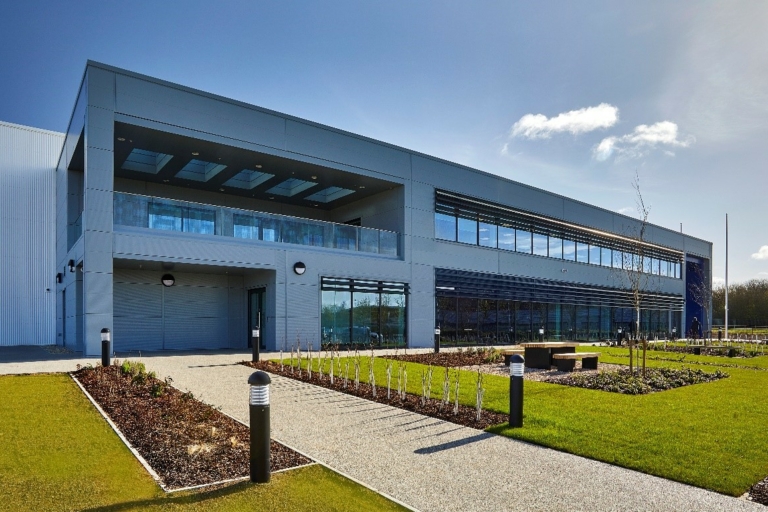Automation may be the answer for Covid-19 impacted business recovery

Robotics could play a significant role in the UK's business recovery, according to the Head of Engineering at the University of Gloucestershire.
Back in February before Covid-19 firmly began its relentless domination of our daily lives, the University of Gloucestershire’s School of Business and Technology hosted a special event dedicated to the engineering and technology sectors.
One particular topic stood out, which Salah Al-Majeed, Academic Head of Engineering Technologies at the University of Gloucestershire, believes will become even more important in offering a solution for UK business recovery during and beyond the pandemic’s devastating economic impact – robotics and automation.
ABB, the Swiss-Swedish multinational corporation, operating mainly in robotics, power, heavy electrical equipment, and automation technology areas, showcased some of its latest innovations at the event. It also offered some stark statistics on how automation is designed, not to ‘steal’ jobs, but to benefit organisations by supplementing high-volume and repetitive work to free up valuable time for more challenging tasks.
While a robot engineer called Yumi wowed guests with its dexterity, speed and programmable accuracy, constructing a small box and packing it with select items, ABB’s Julian Ware offered some details about the benefits of automative solutions for companies. He explained:
“There currently aren’t enough robots in the UK. As a nation we’re one of the top ten when it comes to manufacturing output and our exports are sold across the world. However productivity is surprisingly low compared to other countries.
“In the UK, GDP per hour worked is lower now than it was in 2007, despite employment being higher. In 2016 output per hour in the UK was 22.6% below the US; 25.6% below Germany, and 26.2% below France.”
Considering how these figures must be being further decimated by the impact of Covid-19, it's clear that the the UK needs to work smarter to produce more with existing resources. This means introducing better engineering solutions using robotics and automation.
Greater automation doesn’t mean fewer humans
By training and reskilling employees, organisations can prepare their people to work with automated processes and alongside machines, said Salah Al-Majeed.
As companies come under greater pressure with Covid-19, the biggest immediate impacts of automation are likely to be seen in sectors such as insurance, financial services and human resources where algorithms offer faster and more efficient assessment. In the longer-term robots are likely to be added into manufacturing and services where measurement and analysis are vital to keeping operations running smoothly.
Robots are now being used to help maintain the ‘social distancing’ of some hospital staff and patients, as well as alleviating the workloads of nurses and doctors who are under intense pressure in the face of the Covid-19 pandemic. The growth in robotics usage has been so sudden and widespread it is believed the industry will be worth more than $23 billion by 2021.
Most workers would rather be removed from work which is boring, dirty and repetitive and be provided with more fulfilling roles, enabling them to add greater value and deliver better quality products and services. Just look at the current shortage of fruit and vegetable pickers in the UK at a time of crisis when innovative automation could be saving millions of pounds of otherwise wasted crops.
Is Covid-19 increasing demand for automation and robots?
Covid-19 is already changing the way consumers behave and expanding opportunities for automation. Companies of all sizes are reviewing how they use robots to increase social distancing and reduce the number of staff that have to physically come to work.
In Milton Keynes, a fleet of robots on wheels that deliver shopping have seen their popularity surge as residents are locked down at home.
In Japan, workers at a warehouse in Sugito that processes millions of personal care products each day were overrun by a spike in demand for masks, gloves, soap and hand sanitizer, and so are using more robots to pick objects from bins and assemble orders.
In Texas, the Westin Houston Medical Center hotel is using hospital-grade robots to emit intense light using pulsed xenon to kill pathogens after being wheeled in by housekeeping staff.
Employees and clients alike now care more about their safety and moves towards automation will keep them all healthier. Ultimately customers will reward companies that successfully do this.
The government’s current estimates are that for the engineering sector to gain enough candidates to reduce skills shortages, they would need around 186,000 skilled recruits each year until 2024. This will undoubtedly be true even after the impact of Covid-19 has been fully analysed understood.
Salah added: "The UK is one of the world’s best countries to become an engineer. Not only are University graduates likely to be earning up to 20% more than their counterparts in other subjects, they can also find themselves working in areas such as industrial systems or the Internet of Things. Their expertise is often employed in fast-paced technology and developing products matching rapidly-evolving consumer demands.
"Yes, engineering can be complex, but it stands to reason that everyone benefits if industry and educators work together to catch the attention of a wide range of young, new recruits, not just those who are already deemed to be ‘technical.’ With demand for industry rapidly capabilities rapidly increasing it is encouraging to have something positive to look forward to."














